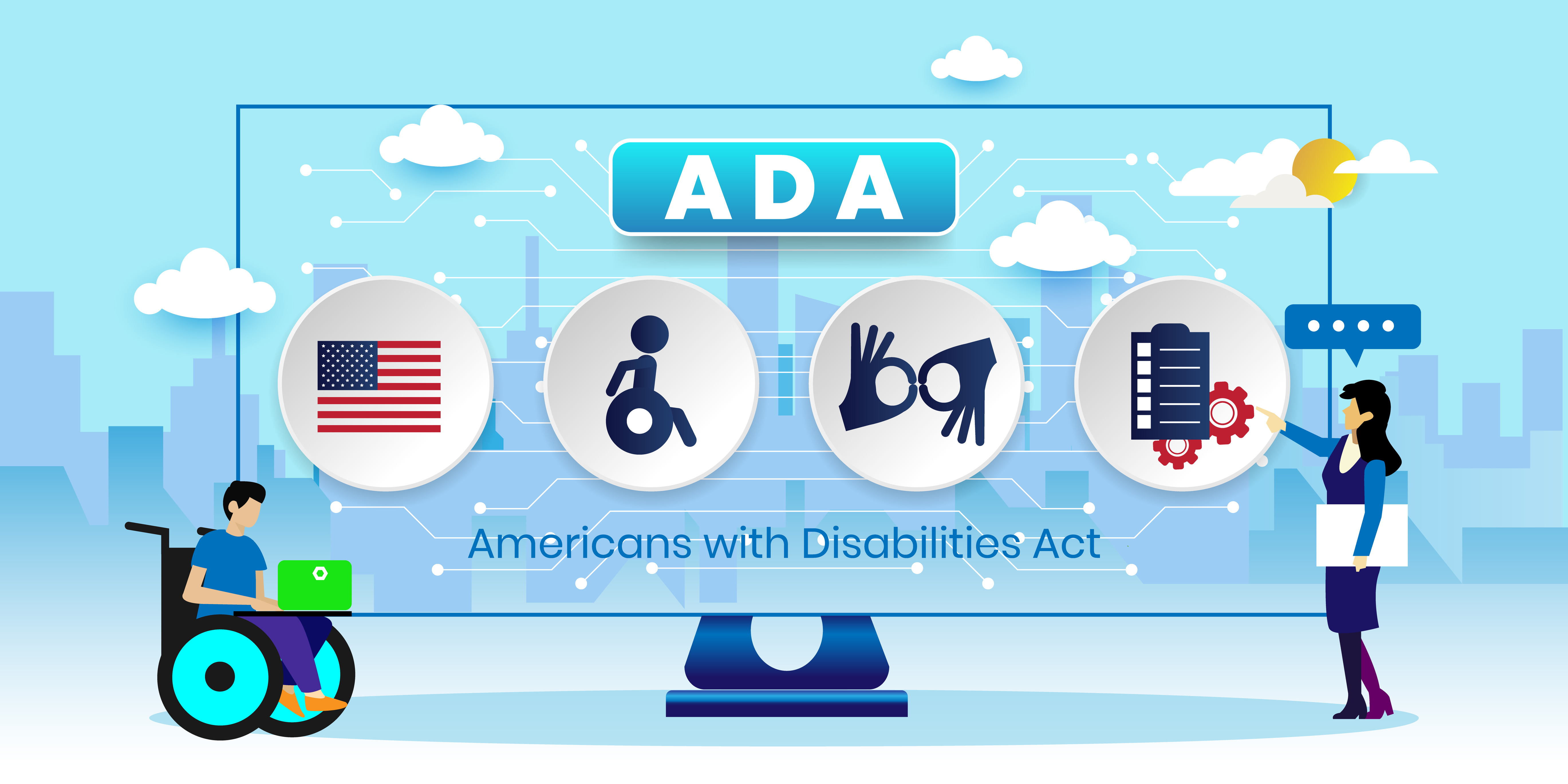
Title II and the law
Americans With Disabilities Act Title II Amended to Address Web Accessibility

For decades, the Department of Justice has mandated that organizations accommodate people with disabilities in their websites and apps. But the DOJ never provided guidance on how that should be achieved. That all changed on April 8, 2024, when Attorney General Merrick B. Garland signed into law the universal web standards that now define accessibility in the digital space.
What is Title II?

The Web Content Accessibility Guidelines were established in 1999 by The World Wide Web Consortium (W3C). When followed, these standards allow assistive technology devices used by 65 million Americans with disabilities to navigate the code used to build websites and mobile apps. These “building codes” improve the user experience for everyone, not just people with disabilities.
Title II of the Americans with Disabilities Act (ADA) pertains to non-discrimination obligations for U.S. state and local governments. The recent final rule under Title II focuses on ensuring the accessibility of web content and mobile apps for people with disabilities.
The rule clarifies the obligations of state and local governments to make their websites and mobile apps accessible. When websites and apps are not accessible, they create barriers for individuals with disabilities. This rule aims to remove such barriers and ensure equal access to government services. By incorporating WCAG 2.1 AA as the legal standard for digital accessibility, the rule provides clarity to state and local governments. They must ensure that their digital content meets these standards.
Embracing Title II: A Business Imperative for Inclusivity and Compliance

In today’s digital age, ensuring that your business is accessible to all individuals, including those with disabilities, is not just a moral obligation but also a legal one. Title II of the Americans with Disabilities Act (ADA) plays a pivotal role in this, as it prohibits discrimination based on disability in all public entities at the state and local levels. This includes public transportation, public education, employment, recreation, social services, and healthcare provided by these entities.

Who is Affected?
The new Title II Rule will affect a broad range of entities and individuals. Specifically, it applies to state and local governments, including all departments, agencies, special purpose districts, and other instrumentalities of state or local government, referred to as “public entities”. This encompasses state executive agencies, courts, legislatures, towns, cities, counties, school districts, universities, community colleges, water districts, regional transit authorities, and Amtrak.
Why Title II Matters for Your Business
- Legal Compliance: Title II sets forth clear legal requirements for accessibility. Adhering to these standards helps businesses avoid legal repercussions and costly lawsuits.
- Broader Customer Base: By making your services and facilities accessible, you’re not only complying with the law but also opening your doors to a wider audience, including the millions of people with disabilities.
- Enhanced Reputation: Commitment to accessibility reflects positively on your brand, showcasing your business as socially responsible and inclusive.
- Improved User Experience: Accessible design often leads to a better user experience for all customers, not just those with disabilities. Features like clear navigation and readable fonts benefit everyone.
- Innovation and Market Leadership: Businesses that prioritize accessibility are often seen as leaders and innovators, setting the standard for others in the industry.

The Impact of Non-Compliance
Ignoring Title II can have significant consequences for businesses. It can lead to:
- Legal Challenges: Non-compliance can result in lawsuits, which can be expensive and damage your business’s reputation.
- Loss of Customers: If potential customers cannot access your services, they will go elsewhere.
- Negative Publicity: News of non-compliance can spread quickly, leading to negative press and a tarnished brand image.
Conclusion
Title II is not just a legal requirement; it’s a cornerstone of ethical business practice. It ensures that your business serves all customers equally, fostering an environment of inclusivity and respect. By embracing Title II, your business not only complies with the law but also demonstrates a commitment to serving the community and enhancing the customer experience for everyone.
Sources:
https://www.forbes.com/sites/forbesbusinesscouncil/2024/05/08/what-is-ada-title-ii-and-how-to-comply
https://www.verywellhealth.com/what-is-hipaa-5216755
https://www.ada.gov/law-and-regs/regulations/title-ii-2010-regulations
